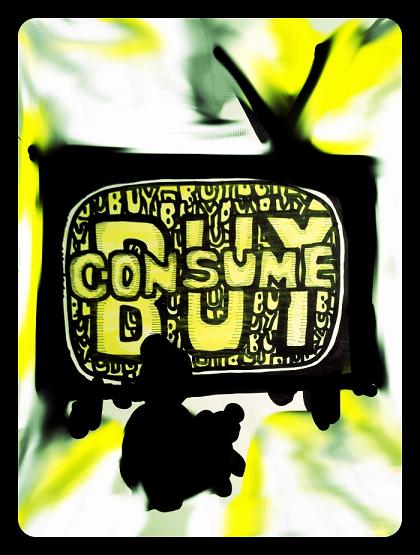[dropcap style=”font-size:100px; color:#992211;”]W[/dropcap]hen we think of Margaret Thatcher and Thatcherism, we imagine a kind of selfish ultra-individualism and ferocious rejection of society.
But as the… let’s just say, former leader, is carted out of the Ritz and taken to lay in state (as opposed to leaving the country in a state), it may be time to accept one key fact about Thatcher.
She was no individualist.
Thatcherism itself was not about the self. It was about rejecting a previous collectivist ideal, namely the post-war social democratic consensus, that had certainly grown moribund, though not always as grotesque and destructive in its latter stages as its caricatures might have it.
But what replaced it was, again, a collective identity. You could buy your own council house (like everyone else), make lots of money via laissez-faire economics (like everyone else), ditch your factory job and work in the service sector (like everyone else), sell off your public utilities in exchange for shares (like everyone else) and go shopping, non-stop. (Just like everyone else.)
[quote]The closed shop
and the
always-open
supermarket are both
smothering [/quote]
Naturally, this is neither particularly individualistic nor liberating. The closed shop and the always-open supermarket are both smothering in their own ways, and unforgiving for those not invited. The Communist Party of China had long since learned that freedom to shop makes populations far more biddable than letting them vote.
And as for those who didn’t make the transition, who didn’t make loadsamoney, or who were still too black or Asian for 1987, there was another collective identity: that of the failed and the marginalised. Whole swathes of the North, Scotland and Wales still bear the scars from this grievance, division and loss. Thatcherism reduced people to streams of raw data; unemployment figures and drug and alcohol dependency rates, obesity, lower life expectancy, crime.
[quote]Thatcherism reduced people
to streams of raw data[/quote]
Thatcherism hated the individual, seeing him or her as deviant. A lover of the self wouldn’t have imposed Section 28, one of those timely reminders that whole swathes of the UK polity were raging homophobes, or banned absurd and often unintentionally hilarious ‘video nasties’ in case some easily-led lumpenprole from Barnsley saw Cannibal Holocaust and was forever warped.

Only respectable people from respectable families where respectable wives made respectable dinners for respectable husbands and respectable children deserved respect. Everyone else was somewhat suspect, and either doomed to the scrapheap or a beating at the hands of police with concealed serial numbers.
Children fared little better. A ban on corporal punishment was only narrowly passed, while schools became even more proscriptive with the National Curriculum. As anyone who itched in awful school uniforms or found out the hard way that school teachers don’t actually give a shit will already know, the UK education system sort of hates you if you’re not average, or are unable to conform.
And the National Curriculum hammered this into every child’s head.
In the end, it was Thatcher the lone woman who was driven out, the collective Tory machine turning on her when her individual worth was reduced to falling poll numbers and she too was cast out onto the scrapheap (albeit a rather cosy scrapheap). In later years, she became a sort of mascot to the very collectivist and authoritarian control freaks of New Labour, invited over for tea at Downing Street and patted on the head like a lucky midget.Thatcher herself was a contradiction. A woman who succeeded by utterly rejecting her femininity, and yet wept when finally ejected from power. She was worshipped with blind zeal by some and utterly loathed by others. And through this, she ceased to exist as a person and genuinely became the power-crazed, hubristic caricature she was already seen as. Even as early as 1979, power had destroyed Margaret and left only Thatcher.
Politics took away her humanity, Alzheimer’s took away her mind and, in the end, death took away what was left. She had been a husk for a long time, and in no position to enjoy her last day in the Ritz, having denied so much to so many beforehand.
Because Thatcherism, with its jingoism, slogans and partisanship, was all about destroying the self. Enlightened self-interest, which knows an equitable society secures individual rights, must reject Thatcherism and its successors precisely because they threaten personal freedom.
Consumerism and dog-eat-dog are every bit as dehumanising as collectivism and enforced obedience to the state. Instead, we have a damaged, angry nation riven with strife and defined by ugly, atavistic tribalism, with little room for you or I, but plenty for us and them.
Illustration by Dan Booth
Image : Anna Balecho

Alexander Hay is a writer and polemicist based online and in print.




















![L'Esprit comique [Der komische Geist], René Magritte, 1928. Courtesy Sammlung Ulla und Heiner Pietzsch, Berlin © 2025, ProLitteris, Zurich Photo Credit: Jochen Littkemann, Berlin](https://b276103.smushcdn.com/276103/wp-content/uploads/2025/07/ew11_0098489_2025-05-12_web-140x174.jpg?lossy=1&strip=0&webp=1)


When all is said and done, she had great hair.
Nice article. Turns Thatherism on its/her head. No such thing as society, eh? Her’s was the politics of collective narcissism (if such a thing is possible). And we’re reaping the rewards.